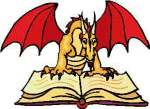 Gem Windcaster, on 05 May 2019 - 03:52 AM, said:
Gem Windcaster, on 05 May 2019 - 03:52 AM, said:
 Andorion, on 05 May 2019 - 01:47 AM, said:
Andorion, on 05 May 2019 - 01:47 AM, said:
 Gem Windcaster, on 04 May 2019 - 08:36 PM, said:
Gem Windcaster, on 04 May 2019 - 08:36 PM, said:
 Andorion, on 04 May 2019 - 04:35 PM, said:
Andorion, on 04 May 2019 - 04:35 PM, said:
 Gem Windcaster, on 03 May 2019 - 11:26 PM, said:
Gem Windcaster, on 03 May 2019 - 11:26 PM, said:
I would say most classics deserve to be called that, but sometimes you might need some context with some understanding in which time the book was written - but I'd say that classics usually deal with universal themes that anyone can understand and relate to, as long as you get by the language barrier. Case in point: discussing Crime and punishment in my literature class was almost an out of body experience, and I still consider it one of the best if not the best book I've read. Would have I felt the same way if we hadn't discussed the themes and writing in somewhat more detail than I might have, had I just read it on my own time? Impossible to tell, but that said, anyone that is interested in literature, and classics in particular, shouldn't be afraid to read breakdowns and analysis of these books to get a deeper understand of why they are called classics.
There are some classics that will leave you scratching your head, but generally you will still understand on some level why they are counted as such. Ulysses by James Joyce for instance, just speaks for itself, but it's probably not something that everyone would enjoy reading.
Edit: I didn't realize at first this was a necro'd thread. Apologies.
Sure, context makes sense, and often adds to the charm and power of a book. But sometimes, I would argue that a book's inability to transcend its context brings a book down.
In War and Peace, Tolstoy lets the book wander rather badly in the second half, and the second epilogue is basically a diatribe against Napoleon and a lecture on his own philosophy of history. It totally breaks the book in my opinion. Somewhere towards the end, the author stopped letting the character or the story speak and felt it necessary to interject his own views incredibly forcefully into the story.
I dunno, I see your point, but sometimes I feel that the flaws of the classics is part of why they're classics. Imperfection is the foundation of invention. Books like War and Peace takes chances and the authors truly makes the craft of writing their own. Neither of us would write war and peace, and that's the point. Where the book lacks in story, it gives you the insights from the mind that wrote it - and it's probably entirely his point to do it forcefully. Boring or long winded, it is up to the reader to take the book for what it is. I don't think 'classic' has to mean 'perfect', it just means impactful and lasting - and that doesn't happen in a vacuum.
In essence, the definition of 'classic' is not just one thing, but many things, even different for each book. I didn't finish War and peace, but it had a profound and lasting effect on me, and personally I would say it definitely has earned it's label as classic.
War and peace definitely is one of the books that transcends its context - it doens't have to be perfect to do so. Sometimes it just takes one paragraph. But hey, that's my take on it. I don't think there's a right way or a wrong way to view the classics - as with all books it's about the connection to the reader, whoever that is, and some books are just harder to connect to.
I am afraid I have to disagree regarding War and Peace transcending its context.
You see, as part of my academic work, I have had to read quite a bit on philosophies of history. And Tolstoy is very much a product of his time. What he says is basically a less professional, less well articulated repetition of Hegel with a touch of Kant. And these philosophies were challenged soon after. Reading Tolstoys musings on Napoleon, you immediately see him as a product of Tsarist Russia, from his concept of the ideal aristocrat, to his criticism of Napoleon, to his musings on history. He starts off the book quite well, with a very witty critique of aristocratic society, and I feel that the chapters on Austerlitz are some of the greatest ever written, but, after that he slowly starts to lose his way.
In this respect, he does not transcend his context at all. He is bogged down by it, hampered and restricted. When he tries to look over the horizon, the coloured glasses he wears distort his vision.
Well, yes if you see it in that perspective I can certainly understand what you're saying, but I would argue that it's exactly what makes it special. I'm not sure quite how to express the thoughts I'm having right now - it's like describing a painting over the phone. I'm not really a fan of comparing literature works with historical facts or philosophers in that sense. I see it more as a window into the authors mind, which makes it intricately fascinating. If you want accuracy or solid philosophy, then you would want to read philosophers and historians. I understand what you're saying though, I just think that 'transcending context' can mean many things, and I don't necessarily agree with your definition in this instance, even if I can appreciate the perspective.
If you try to define what you would want from the book instead, you would quickly realize that nothing in the end could reach the standard you would set - since there would always be someone that would feel the same way about any of the classics that you feel about this book. There are many classics I could break down and wouldn't enjoy in the same fashion, but I still recognize them as classics, because they transcend their context despite their flaws, sometimes even because of them. I realize this is a completely upside down way of looking at things, and I don't expect you to understand or even agree with this. I'm totally fine with that. I understand your view - I'm just twisting things around and turning it on its head. It's something my mind does sometimes -it's like reaching around the concept like it's a 3d object and seeing different shapes depending on how you turn it.
I'm probably not making sense to you, my apologies.
Re: your first para, I am not saying that War and Peace declines because Tolstoy is wrong, I am saying the fact that Tolstoy at points towards the end of the book basically abandons the story and speaks as himself, to inject his own ideas directly into the text lowers the quality of the book drastically. That's just a bad authorian decision to me.
Re: your second para, it seems that you are arguing that flaws may actually add to the perceived value of quality of a classic - I am not arguing against that. That is a subjective personal thing, and to each his own. My root objection to the whole glorification and pedestalization (I just made that up lol) of classics in society and culture is that these flaws are ignored and minimized. I feel bad for authors who living in the same times, did a much better job and yet get lumped in with the same crowd or even miss out.
Example: Austen shows how regency society restrained women and how they made the best of it. Bronte took this, ran with it, went beyond and produced something that broke the mould of "polite society" in Wuthering Heights.
I would argue that Dumas does a better job in Monte Cristo than Tolstoy does in War and Peace.
To me, people like them, London, Twain, Verne, Thomas Hardy better epitomise the idea of a "classic" They do not just represent their times, they turn on it, rip it apart and hold it up for all to see. Hardy's the Jude the Obscure is one of the most raw and painful critiques of Victorian morality that I have read.
I realize this is my personal standard of course.

 Help
Help













